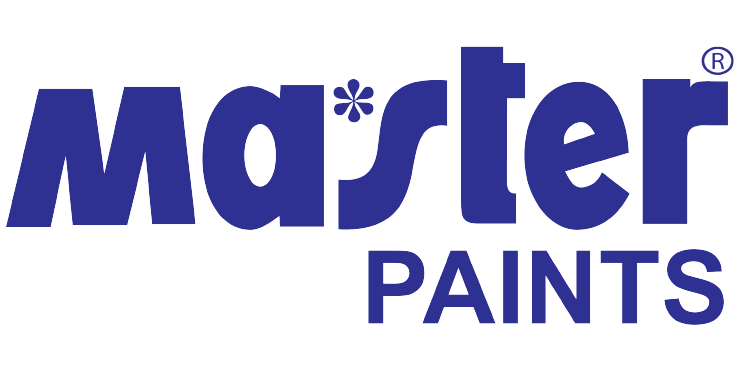Cart is empty
FAQS about products
1. What is Decorative Paint?
ANS:
Used on both interior and exterior walls, decorative paint enhances and embellishes them to give eye catching results.2. What is Oil Based Paint?
ANS:
Oil based paint is a more durable though slow drying paint that is made up of either alkyd (synthetic) or linseed oil. The former is more commonly used as its more budget friendly.3. What is Water Based Paint?
ANS:
Also known as emulsion paints they are made up of a paint material which is dispersed in a water based liquid and can be used on both interior and exterior wall surfaces.4. What is Interior Paint?
ANS:
Any type of paint selected to cover your interior walls, be it matt, high gloss, semigloss or egg shell finish is interior paint. The type of paint used will determine the over all look of your space.5. What is Exterior Paint?
ANS:
Designed to withstand harsh weather conditions, exterior paint provides durable finish to your walls in all weathers. The Master Paints weather resistant finish is antifungal and provides high scrub resistance.6. What is a Low VOC Paint?
ANS:
Technically speaking, paint with less volatile organic compounds are known as low VOC paints. This means the paint is more eco friendly as toxic emission released in the air will be less due to decreased amount of VOC in the paint.7. What is a NO VOC Paint?
ANS:
A paint that does not have any volatile organic compound in it is classified as a NO VOC paint. Nonetheless, during the tinting process some VOCs can be added to the paint and therefore it may contain some harmful chemicals.8. What is Gloss Finish?
ANS:
Depending on how much light the paint finish reflects, it can be called a high or low gloss finish.9. What is Matt Finish?
ANS:
A paint finish mostly used for interior walls that has no shine or glossiness.10. What is Synthetic Enamel?
ANS:
Also known as hard based paints, synthetic enamel is usually alkyd based which provides superior quality and a smooth finish to all interior, wooden and metallic surfaces. The Master Synthetic Enamel is also stain resistant and provides great coverage.11. What is Synthetic Metallic?
ANS:
The fast drying and easy to apply synthetic metallic is a high gloss finish suitable for all types of interior and exterior wooden and metallic surfaces.12. What is Super Emulsion?
ANS:
Super emulsion is the budget friendly acrylic based paint which provides a smooth finish and great coverage.13. What is Luxury Emulsion?
ANS:
The Master Luxury Emulsion is suitable for all interior masonry surfaces that provides luxurious, smooth and soft matt finish with high scrub resistance.14. What is Weather Resistant Emulsion?
ANS:
It is high quality, 100% acrylic based emulsion for all interior and exterior walls.15. What is Royal matt Emulsion?
ANS:
This wonderful product is made up of a Biocidal Interior Acrylic and Silicon based emulsion which provides a rich matt finish and has easy to clean properties.16. What is Synthetic Varnish?
ANS:
It’s a fast drying high gloss varnish that is scratch resistant and provides smooth finish to all interior and exterior wooden/metallic surfaces.17. Difference between Oil Based and Water Based?
ANS:
The difference is in the type of solvent used in both paints. Oil paints use an organic solvent where as water based paints use a liquid component which is almost all water.18. Difference between Interior Paint and Exterior Paint?
ANS:
Both have many similarities and many differences as well. Interior paint is usually designed for a different purpose like being stain and scrub resistant to be user friendly, while exterior paint is designed to tackle harsh weather conditions, mildew and to protect the finish against fading.19. Difference between Gloss Finish and Matt Finish?
ANS:
Technically speaking, the paint sheen describes level of glossiness or matt finish. Higher the sheen, more glossy will be the results and with lower or no sheen, the finish will be more matt looking (or flat). Usually glossy finish tends to be more stain resistant than matt ones20. Difference between Super Emulsion and Luxury Emulsion?
ANS:
Former is a budget friendly water based paint while the latter is a high quality acrylic based emulsion with a soft matt finish.21. Difference between Synthetic Enamel and Matt Enamel Finish?
ANS:
Master Superior Synthetic Enamel is a high quality synthetic enamel with a smooth glossy finish where as Master Matt Enamel is a high-quality paint that provides a flat (matt) finish.22. Difference between Royal matt Emulsion and Matt Enamel Finish?
ANS:
Royal Matt Emulsion is a Biocidal Interior Acrylic and Silicon based emulsion with easy to clean properties and rich matt finish. Master Matt Enamel (Sea Shell Finish) is a high-quality paint which is suitable for interior surfaces such as wood, metal, and masonry.FAQS about general application, paint surface and environment
1. What is the best season for paint (Interior\Exterior)?
ANS:
Most areas of Pakistan have a harsh climate. Extremely hot or humid weather is not very suitable to start with a paint job. Neither is the monsoon season. Mild weather i.e throughout the end of summers till June and July is ideal season for paint. Although interior paint can be done in hot weather as well.2. What kind of paint should you use?
ANS:
Depending mostly on personal preferences, you can use from a variety of matt or glossy paint finishes for your interior walls like Master Super Emulsion, Royal Matt or Plastic Emulsion.3. How long will a painter take to paint my house?
ANS:
It totally depends on the size of your house. Though on average, 5 to 7 days should be enough to cover a 3 bedroom house with simple paint finish by a team of 3 members.4. My home will not hold paint for more than 3 or 4 years. Why does it keep peeling?
ANS:
You need to reseal the area with primer and paint to avoid further damage. Use a mildew killing cleaner on pre-cleaned surface and apply a stain clocking primer after the area is dry. Choose a product that is made for high humid areas to receive long lasting results.5. Are light colors better than dark colors or is it the opposite?
ANS:
It depends on each person’s individual preference. It cannot be said if one color is better than the other. Though if the space is smaller, lighter colors specially white and cream will help reflect light and make it look spacious.6. How do I select the right exterior color?
ANS:
It’s a nerve wrecking decision to choose the right color for your front and side elevations. The decision can go horribly wrong or for all you know produce great results. The best way to go about it is always ask for a sample to be painted on your wall and you can evaluate it in the morning and evening light how it looks and whether this is the finish your want for your house or not. Or ask a Master Paints representative for consultancy.7. Can you help with other things besides painting, like drywall repairs or surface preparation?
ANS:
Master Paints has a number of products to choose from. It provides all types of base finishes, interior and exterior paints, wood and metallic finish, industrial and also car paint finishes for you to choose from.8. Do you have a warranty?
ANS : Our warranty covers premature fading or cracking of paint finish or any paint defects that occur other than accidental damage by the user or natural disasters.
9. Is power washing necessary before painting exterior surfaces?
ANS:
It is always recommended to power wash before a new paint job to get rid of all the dirt and debris, as painting over a dirty surface will not produce long lasting results.10. My woodwork is painted in an oil-based paint. I don't like the odor of oil-based paints. Can I change it to Gloss or Matt Lacquer?
ANS : Yes, after removing the oil paint with a paint remover, you can prepare the base and apply any matt or gloss lacquer as per your choice.
11. What about low odor and environmentally friendly paints?
ANS:
Low odor and environment friendly paints usually contain low VOC. There may be some odor while they are applied but are completely odorless when the job is done.12. How often should I repaint my home?
ANS:
On average 3-5 years depends on the environment and conditions.13. How quickly can a paint advisor get to my home?
ANS:
Give our experts a call and they'll guide you every step of the way. You can schedule a visit for as soon as the next day.14. Can you offer advice on how to choose a color?
ANS:
Totally. Our color experts can guide you about different color schemes and what ambiance a specific color creates. You can select a warm and welcoming color scheme for your guest areas and more vibrant or calm for your personal space as per your liking.15. How many coats of paint are included in the quote?
ANS:
Experts usually advise 2 coats for better results, smooth coverage and long lasting results.16. What types of environmentally friendly options do you offer?
ANS:
Master Paints has a variety of lead free and environment friendly paint options for you to choose from. They are not only good for the environment but also offer great results. Give us a call and our experts will happily go over the options with you.17. How much area will one gallon of paint-can cover?
ANS:
Approximately up to 400 square feet.18. How does paint dry?
ANS:
When the water and solvent component of the paint evaporate, it makes the pigments and other compounds bind together. When the wall is no longer sticky to touch, this means enough solvent has evaporated from the paint and hence considered dry.19. Why is Surface Preparation important?
ANS:
To achieve long lasting results, it is essential for you to prepare the area. Check for cracks and damp spots, clean and use a primer to help paint adhere better and produce better results.20. When should I use a primer?
ANS:
Primer is what you coat your wall with before actually applying paint. It is used to seal the surface and helps the paint to adhere better and produce long lasting results.21. Should I use two coats of primer?
ANS:
You are good to go with only 1 coat of primer to prepare the wall for paint.22. Can enamels be used over lacquers?
ANS:
Yes they can be, though you can’t put lacquer over enamels as lacquer absorbs the thinner present in the paint/primer that is sprayed over it.Give Feedback












